Scottish education has seen the winds of change picking up around it for some time now.
Two years ago, following an independent OECD review, plans were announced to scrap and replace both the SQA and Education Scotland, with the new agencies expected to begin their work next summer.
In May, against the backdrop of various other reviews, the long-awaited outcomes of the “national discussion” on Scottish education identified an “overwhelming appetite for change”.
In October, plans for a new national centre to ensure excellence in teaching across Scotland was announced by Education Secretary and former Fife teacher Jenny Gilruth.
It comes as Scottish ministers strive to close the poverty-related attainment gap and best prepare young people for the ever-changing landscape of the 21st century.
But following a report when a major new study concluded that Scotland’s post-Covid-19 schools are dealing with a “rising tide of disruptive behaviour, aggression and violence”, and following a Pisa report published this week that shows a long-term decline in Scotland’s performance in reading, maths and science, what lessons can be learned from an innovative open-access online learning platform which was launched by leading independent school Dollar Academy in May 2021?
Can real-world “portfolio-based” achievements bring wider benefits to young people than the still heavy focus on end of year exams?
Dollar Academy rector rejects narrative that Scottish education is ‘broken’
When Dollar Academy rector Ian Munro surveys the Scottish educational landscape, he becomes “increasingly frustrated” by the narrative that Scottish education is “broken”.
The suggestion, he says, does a “disservice” to the hundreds of teachers and young people who do “magnificent things” in schools across the country every day.
He finds such general descriptions “quite unpalatable” and describes it as “lazy thinking”.
However, while supporting the principles of Curriculum for Excellence, Mr Munro agrees there is need for further change.
Central to this is making sure the system doesn’t focus entirely on its “unhealthy obsession” with exams.
The 41-year-old former biology teacher, who’s been leading Dollar for five years, is pleased to see wider systemic reform under way.
However, the changes going on in the background have also boosted a major industry and education partnership he’s involved with that aims to help reduce the attainment gap in Scottish education.
What lessons could wider Scottish education learn from FIDA?
FIDA (Futures Institute at Dollar Academy), which was launched by Dollar 2.5 years ago, empowers young people, from across Scotland, to learn in new ways through innovative projects rooted in the United Nations’ Sustainable Development Goals.
It has been created to address three fundamental challenges – sustainability, equitable access to education, and the need for curricular reform.
The platform enables young people to work with experts from industry and universities to better understand, and design solutions to, some of the most complex challenges faced, such as climate change, poverty and social injustice.
It offers a wide variety of ways young people can get involved with a core offering of 17 Global Challenges – one for each of the UN SDGs.
Mr Munro said this more collaborative approach to the development of education, curriculum and assessment in Scotland had caught the eye of civil servants.
They’ve been speaking to FIDA in recent weeks to see if there’s potential to “scale it up” as an alternative pathway into “positive destinations”.
However, it’s not just FIDA who are “disrupting” in this space.
He’s pleased there are other players out there who are developing “creative next generation curriculum design”.
“What’s encouraging is they are being listened to by Education Scotland and the policy makers,” he said.
“It’s part of this collaborative approach – policy makers listening to the good stuff that’s happening and trying to figure out how to scale it up across the system, which isn’t easy.”
Deal with Stirling University has potential to widen Scottish education roll-out
A significant milestone was reached last month when Dollar Academy signed a Memorandum of Understanding (MoU) with Stirling University to formalise their shared commitment to furthering the vision and objectives of FIDA and Scotland’s International Environment Centre (SIEC).
The MoU outlines the institutions’ joint approach to exploring accreditation of new qualifications developed by FIDA, as well as formulating and delivering a programme of sustainable enterprise and entrepreneurship.
The programme is supporting young people to generate creative responses to sustainable development challenges and turn them into real-world products and services.
The partnership will also see the university collaborate closely in the development of FIDA’s sustainability diploma as it seeks to obtain formal accreditation with the potential of offering students a direct path into higher education.
Stirling University has pledged its support to help FIDA ensure that the course is held in at least equal regard to other school qualifications in terms of university entrance requirements, widening access to higher education via an alternative to the more traditional SQA pathway.
Mr Munro said: “We’re delighted to have the support of the University of Stirling in ensuring our FIDA qualifications can enable direct entry to higher education.
“At the same time, the collaboration will provide learners with access to a wider range of resources – including experts at the university – which will further broaden their learning experiences as well as providing a valuable insight into different career pathways.
“We also look forward to working with the university and Scotland’s International Environment Centre to turn the ideas generated by youngsters through FIDA courses into real-world products and services.”
Rector’s unwavering belief in ‘transformative power of education’
Mr Munro, who previously held leadership positions at George Heriot’s (his alma mater), Gordonstoun and Shiplake College, said FIDA has placed Dollar Academy at the forefront of educational innovation in Scotland.
To date, the initiative has offered over 900 young people across the country the opportunity to learn in a different way, by undertaking courses that are built on three core principles:
Learners are required to design a solution to a real-world problem; each course is rooted in one of the UN Sustainable Development Goals and all content is co-created with experts from industry and/ or universities.
Over 50 local education authority schools have been partnered with, including Dundee.
Politicians should ‘stop viewing education as a political football’
Mr Munro agrees there are many systemic issues facing education and society in Scotland.
Some of the challenges that young people face in schools across the country aren’t solely to do with schools.
However, not surprisingly, as a teacher, he believes in the transformative power of education.
Systemically, he’d like to see politicians “stop viewing education as a political football”.
Short termism is the “antithesis of good pedagogical, educational development”, he says.
“For education in general I think our young people deserve to see progress and development,” he said, adding that planning permission has also been secured for a new FIDA institute which will give it a physical home from next summer.
“Not least because they’ve now been given a voice in the shaping of that through the national discussion.
“If you give somebody a voice and don’t listen to it, that’s really worrying.
“I think there is an appetite for change from teachers, young people, even teaching unions.
“I think there’s a recognition we need to keep moving forward.”
Mr Munro says his ask has always been that FIDA have a “voice at the table” and it’s recognised that they can actually help improve the system – not just for the 1300 pupils at Dollar, but by working with other schools throughout the country.
“If schools work together, and more work is done together, good things will happen,” he added.
“FIDA was always the beacon project. I think it’s achieved that.”
What’s the view of the Scottish Government?
Asked to comment on the role of FIDA and ongoing reviews of Scottish education, a Scottish Government spokesperson told The Courier: “Scotland’s school education system is performing well but we are determined to improve further, which is why we are implementing further reforms, including consulting on legislation to establish a new qualifications body, as well as creating a Centre for Teaching Excellence to ensure that Scotland is at the cutting edge of teaching practice.
“We are committed to developing a digital strategy for education which will seek to outline the role of digital tools and services in the future of Scottish education.”


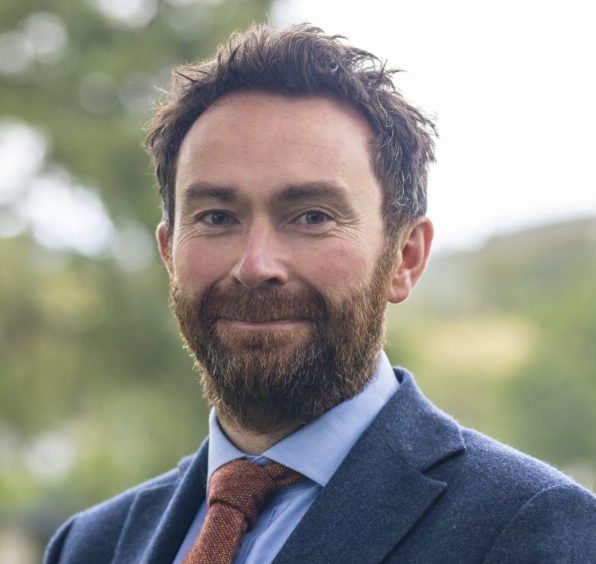
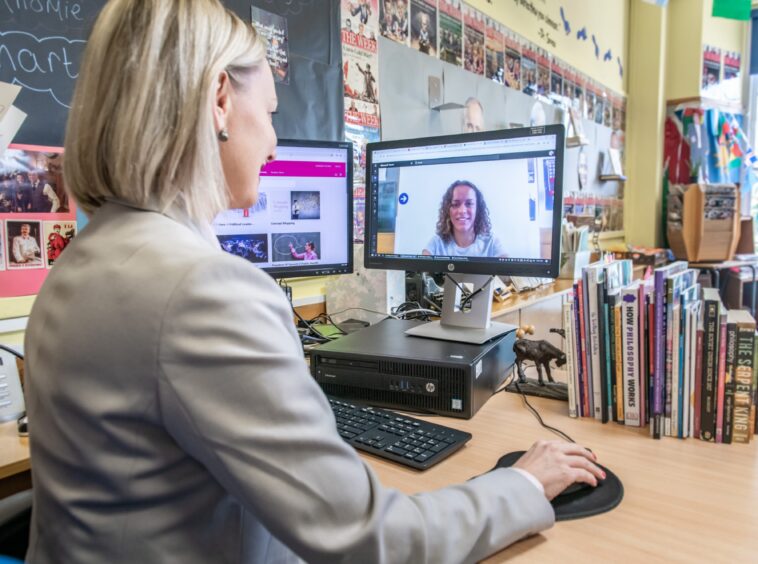

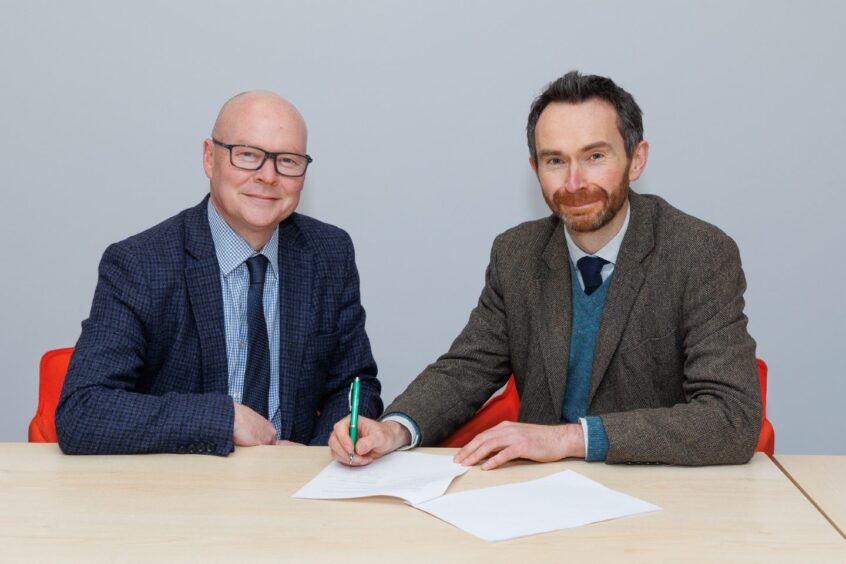

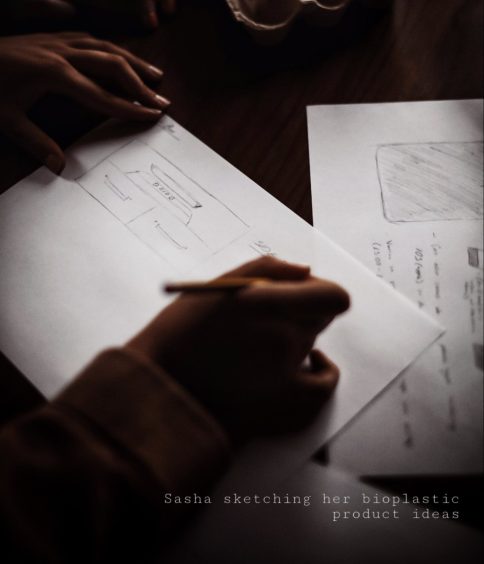







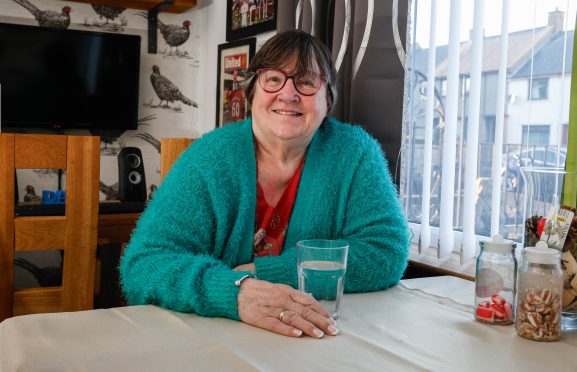



Conversation